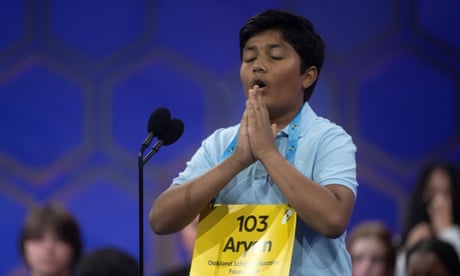
The 96th Scripps National Spelling Bee, which begins Tuesday, is a celebration of discipline and focus in a world where those things appear to be in vanishing supply
A question that I perennially encounter when I tell people that I am a professional spelling bee tutor is: “Why bother with spelling bees when we have spell check?” It’s an eminently understandable response, especially when it comes from people who have never watched a bee. Cell phones and computers have no problem storing the entire corpus of the English dictionary and consulting it at a moment’s notice. Like all games and sports, spelling bees aren’t strictly speaking necessary or useful – at least not in an immediately practical way. Yet questions about spelling bees’ utility (or lack thereof) miss what makes them so beloved – why it broke spellers’ and logophiles’ hearts when the Scripps National Spelling Bee was cancelled in 2020 amid the pandemic; why the Bee was quickly revived in 2021 and 2022, with altered rules and a partially virtual format; and why the Bee continues to captivate people internationally, motivating countries like Jamaica, China, and Ghana to send teams to Washington DC to compete.
The rise of artificial intelligence is provoking a great deal of anxiety these days. The development of machine-learning technologies which vastly outstrip human abilities forces us to meditate upon what, in the final analysis, differentiates us from AIs. It also compels us to consider which spheres of human life we think ought to be automated, and which activities we feel should be defended against AI incursions.




